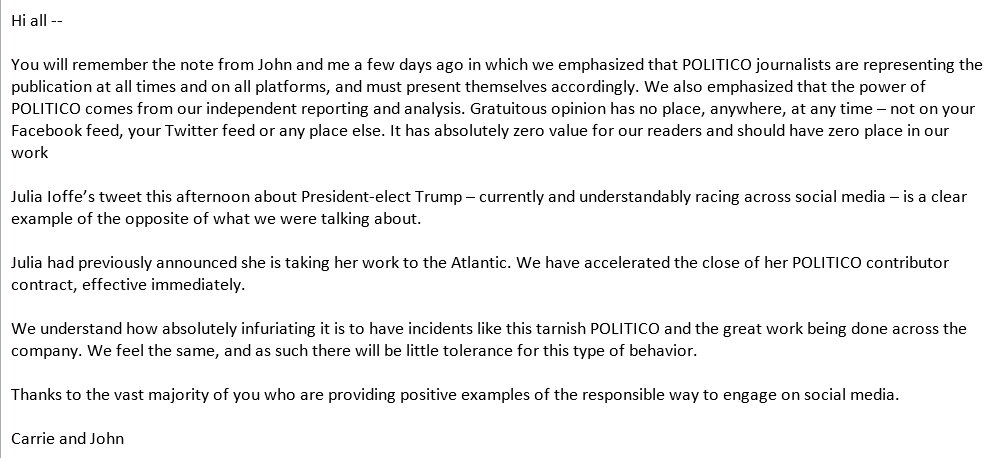The Hill reports that Ivanka Trump is going to have an office in the White House that’s usually kept for “the First Lady.” Julia Ioffe, a political journalist who writes for Foreign Policy and until yesterday wrote for Politico, tweeted about the hint of skeeviness in the story:

Either Trump is fucking his daughter or he’s shirking nepotism laws. Which is worse?
Crude, but then it’s impossible to write honestly about Trump without crudity. Trump himself oozes crude from every pore, and that means that putting his words and actions into more genteel language is likely to misrepresent them. He is crude, he is a pig, he does see the world in such contemptuous and libidinous terms. He did, after all, agree with Howard Stern that his daughter is “a piece of ass,” on live radio. So yeah, we’re not going out of our way to be crude if we say maybe he’s fucking her, because maybe he is, and if he is that’s how he would put it.
Remember the Access Hollywood tape? It started with his failed attempt to fuck – his word – a married woman.
Donald J. Trump: You know and …
Unknown: She used to be great. She’s still very beautiful.
Trump: I moved on her, actually. You know, she was down on Palm Beach. I moved on her, and I failed. I’ll admit it.
Unknown: Whoa.
Trump: I did try and fuck her. She was married.
Unknown: That’s huge news.
That’s Trump. That’s who he is. He doesn’t have sex with women, he fucks them.
In my view, that’s why Ioffe worded her tweet that way – because it’s Trump she was talking about.
But Politico doesn’t see it that way.
The respected political journalist Julia Ioffe’s tenure at Politico has come to an endafter she posted an unfortunate — and straight-up vulgar — tweet about Donald Trump and his daughter Ivanka. Ioffe was already wrapping up her time as a contributor to Politico and moving to a new job at The Atlantic when she posted the ill-advised tweet, but now Politico is accelerating the process, bringing her contract to a premature close.
…
The political news organization promptly ended Ioffe’s contract, sending a textbook strongly worded letter — which of course leaked — from editor-in-chief John Harris and editor Carrie Budoff Brown to its employees:
“Gratuitous opinion has no place, anywhere, at any time – not on your Facebook feed, your Twitter feed or anyplace else. It has absolutely zero value for our readers and should have zero place in our work” – but it wasn’t gratuitous. It was pointed, and it had the kind of value that pointed opinion can have.
I think Politico is dead wrong about this, especially since she said it on Twitter, not in a piece for them that somehow no editor saw before publication.
Ioffe has long been a favorite target of the less-reputable segments of Trump supporters — if you have a high tolerance for poorly Photoshopped, stomach-churning anti-Semitic memes, just give her name a Google image search.
Since Ioffe was already on her way out at Politico the censure doesn’t really count as a firing, per se.
But it’s a censure, and a mistaken one.





